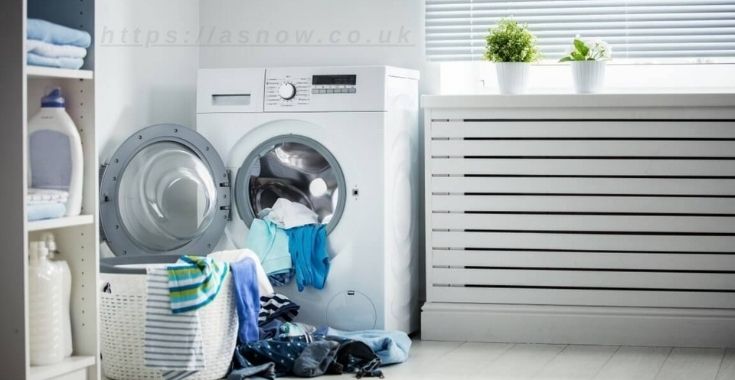UK summers are becoming hotter and heatwaves are no longer rare events. While most people think about keeping cool and safe during these hot spells, household appliances also suffer under the pressure. One of the most overlooked is the washing machine. High temperatures and humidity can accelerate wear, increase electricity usage, encourage mould growth, and even shorten your machine’s lifespan. The good news is that with a few simple adjustments, you can keep your washer running efficiently, protect your laundry, and reduce household bills throughout the hottest months.
How UK Heatwaves Impact Washing Machines
Heatwaves affect washing machines in several subtle but important ways.
- Overheating of components: Motors, control panels, and seals are not designed for constant exposure to extreme heat. Over time, this can lead to cracks, leaks, or mechanical failure.
- Humidity problems: Warm, damp air creates the perfect environment for mould and bacteria. Door seals, detergent drawers, and filters are particularly vulnerable.
- Increased demand: Hot weather means more sweating, more outfit changes, and more laundry loads. The machine works harder, consumes more energy, and wears out faster.
Recognising these risks early allows you to adapt how you use and care for your washer before problems arise..
Choosing the Right Wash Temperatures and Cycles
Adapting wash settings during hot weather protects both your clothes and your machine.
- Everyday laundry at cooler temperatures: Most clothing comes out perfectly clean at 20–30 °C. This saves energy and reduces pressure on your washer.
- Hot washes for hygiene only: Reserve 60 °C cycles for towels, bedding, and heavily soiled clothes. Using high heat too often wastes electricity and accelerates wear.
- Eco and quick washes: For lightly worn summer clothes, eco or express cycles are ideal. They use less water and electricity while still delivering freshness.
By matching cycles to the season, you extend the lifespan of your machine while keeping bills lower.
Saving Energy and Reducing Bills in Hot Weather
With electricity prices high, small changes in laundry habits make a real difference during a heatwave.
- Wash at cooler times: Early mornings or evenings are better for running the machine, as the home is cooler and the appliance doesn’t overheat.
- Load wisely: A drum that is around three-quarters full is the most efficient. Overloading strains the motor, while underloading wastes water and power.
- Temperature equals cost: Heating water is the biggest energy expense. Switching from 40 °C to 30 °C for most washes saves a noticeable amount over a year.
Using your washing machine smartly during hot weather keeps running costs under control while also protecting the environment.
Ventilation and Correct Placement of Washing Machines
Where and how your machine is installed can make a big difference in summer performance.
- Allow airflow: Ensure there is space around the back and sides of the washer for heat to escape. Cupboards without ventilation holes trap heat and shorten machine life.
- Keep away from heat sources: Direct sunlight, ovens, and radiators all raise the surrounding temperature, forcing the washer to work harder.
- Let it dry out: After a wash, leave the door and detergent drawer ajar so moisture can evaporate. This prevents mould and stale odours.
A well-ventilated, shaded, and dry environment helps your machine cope far better with UK heatwaves.
Essential Maintenance During Heatwaves
Regular upkeep is always important, but in hot weather it becomes vital.
- Clean filters monthly: Lint, hair, and detergent residue block drainage and trap moisture. Cleaning ensures smoother operation and prevents smells.
- Run a maintenance wash: Once a month, run an empty hot cycle to flush out dirt, bacteria, and detergent buildup inside the drum and pipes.
- Use detergent correctly: Too much detergent leaves residue that quickly smells bad in hot conditions. Stick to the recommended dosage for your load size.
- Check seals and gaskets: Heat and humidity wear rubber parts faster. Wipe them after each wash and replace if you notice cracks or leaks.
Consistent maintenance keeps your washer fresh, efficient, and far less likely to break down.
Smart Laundry Practices for Summer

Caring for your clothes properly also helps protect your machine.
- Sort with care: Wash delicate fabrics and sportswear at low temperatures, while reserving warmer washes for cottons and linens.
- Pick the right detergent: Modern detergents are designed to work well at 30 °C, meaning you can clean effectively without relying on hot water.
- Don’t leave laundry sitting: Remove clothes as soon as the cycle ends. In hot weather, leaving damp fabrics in the drum quickly leads to mildew.
- Dry in shaded spaces: Air drying is cost-effective and gentle on fabrics, but direct sunlight fades colours. Shade with airflow is best.
These small adjustments ensure your clothes stay fresh and your washing machine isn’t overworked.
Knowing When to Upgrade or Replace Your Washer
Even with excellent care, some machines simply can’t keep up with modern needs.
- Age matters: Washers older than ten years are often less efficient and consume more energy.
- Frequent breakdowns: If repairs are constant, replacement may be cheaper in the long run.
- Outdated design: Older washers often trap heat, while modern models are designed with better cooling and eco-modes suited for hotter climates.
- Limited support: If parts are hard to find or servicing is expensive, upgrading becomes the smarter choice.
Investing in a modern, energy-efficient washing machine ensures smoother performance during UK heatwaves and lowers household bills.
Conclusion
Heatwaves in the UK bring challenges beyond personal comfort—they also put pressure on essential appliances like washing machines. By adjusting wash temperatures, improving ventilation, cleaning regularly, and adapting your laundry habits, you can keep your machine running smoothly. For older or inefficient washers, upgrading may save money and stress in the long term. With the right approach, you’ll protect your machine, your clothes, and your wallet, even in the hottest weather.
FAQ
Is it safe to run a washing machine in a UK heatwave?
Yes, provided the machine is well-ventilated and kept out of direct sunlight. Overheating is mainly a risk in poorly ventilated spaces.
What is the best wash temperature during hot weather?
For everyday clothes, 20–30 °C is ideal. Only use 60 °C for towels, bedding, or heavily soiled laundry.
How can I stop my washing machine smelling in summer?
Run a monthly maintenance wash, clean the filter, wipe seals after every use, and leave the door slightly open to release moisture.
Should I wash smaller loads more often during hot weather?
A three-quarter full drum is best. Avoid overloading, which strains the motor, and avoid frequent tiny loads unless using a half-load setting.
How do I protect delicate fabrics in summer?
Wash them at cooler settings, dry them in shaded areas, and avoid direct sunlight, which can fade and weaken fabrics.
When should I think about replacing my washing machine?
If your washer is over a decade old, breaks down regularly, or consumes noticeably more energy than modern models, it’s time to consider replacement.
